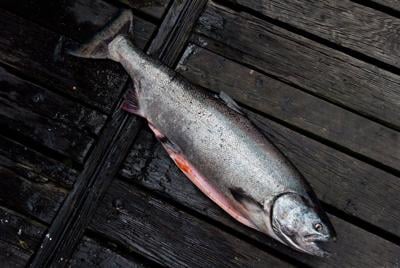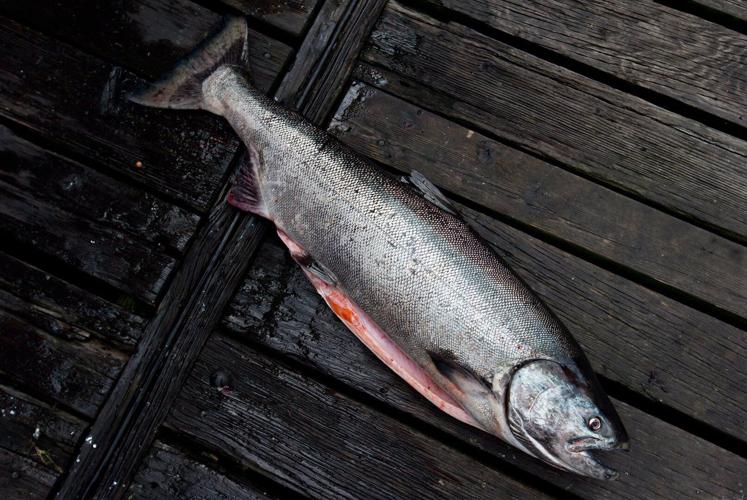VICTORIA - The British Columbia government has ordered forage-crop farmers in the province’s south to turn off their irrigation taps, because “severe low flows” are threatening endangered chinook salmon.Â
Randene Neill, B.C.‘s minster of water, land and resource stewardship, said “when stream flows drop to critical levels, and vulnerable species are at risk,” government must take regulatory action.
“Temporary protection measures are always issued as a very, very last resort after voluntary measures, because we recognize the huge impact it has on water users, including farmers and their businesses,” Neill said.Â
She added that protection orders like the ones issued Monday are “guided by science, Indigenous knowledge and local knowledge, and economic analysis as well,” she said.Â
“They are targeted and they are short-term, to restore flows as quickly as possible.”Â
An order issued Monday stops farmers from irrigating forage crops and certain industrial purposes. It applies to 490 users in the Salmon River and Bessette Creek watersheds, including farmers who grow grass, alfalfa and corn.
The government is also ordering 19 licensees in the Salmon River watershed to stop using water for lawns, fairways and garden industrial purposes.
Neill said the order will be “rescinded if stream flow recovery is sufficient,” but not could give an exact date.Â
A previous ban in 2023 resulted in protests from farmers. Â Â
“By working together, we were able to delay this year’s order later in the growing season, compared to previous years,” Neill said, adding that government had talked to various groups during the summer in preparation.Â
She said impacted users were being contacted Monday with details, and any farmers could apply for assistance.Â
Neill said the restrictions on the Salmon River watershed were due to climate change, the presence of the chinook salmon, and the presence of a “very active farming community” that relied on the river every summer.
She said many farmers voluntarily quit watering when they knew water flows were getting low.Â
“So we need a long-term solution for this, but it involves everybody in that area to come together to make sure that we don’t run out of water in those watersheds, and that we do it together,” she said.Â
Neill was speaking at an update on the drought and wildfire situation in B.C., where there are about 145 wildfires burning in B.C., including about 45 considered out of control.
Neill was joined by Emergency Management Minister Kelly Greene and Forests Minister Ravi Parmer.
“While we are moving toward the last part of the wildfire season, the risk is still very real,” Greene said. “We need to stay prepared for all possibilities and your actions matter. They help protect communities and the people working tirelessly on the front lines.”
Kevin Dunbar from Greene’s ministry said about 550 British Columbians were facing evacuation orders, with 650 under evacuation alerts. Â Â Â
The evacuation orders cover about 1,100 properties, most of them in the Cariboo Regional District, while 600 properties are on alert.
Parmar said crews had put out about 100 fires in the past week, after “a large uptick” since Labour Day.Â
He cautioned against the use of drones near firefighting operations. Last week, a civilian drone struck a BC Wildfire Service aircraft, grounding it for a day.Â
“To anyone who thought that was a good idea, give your head a shake,” Parmar said.Â
This report by The Canadian Press was first published September 8, 2025.























To join the conversation set a first and last name in your user profile.
Sign in or register for free to join the Conversation